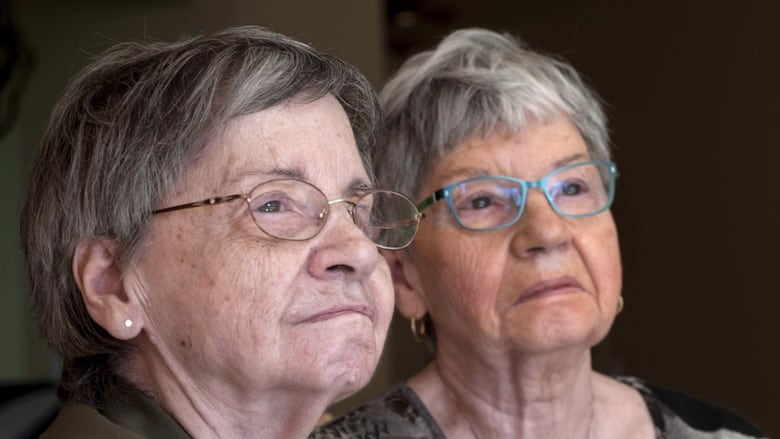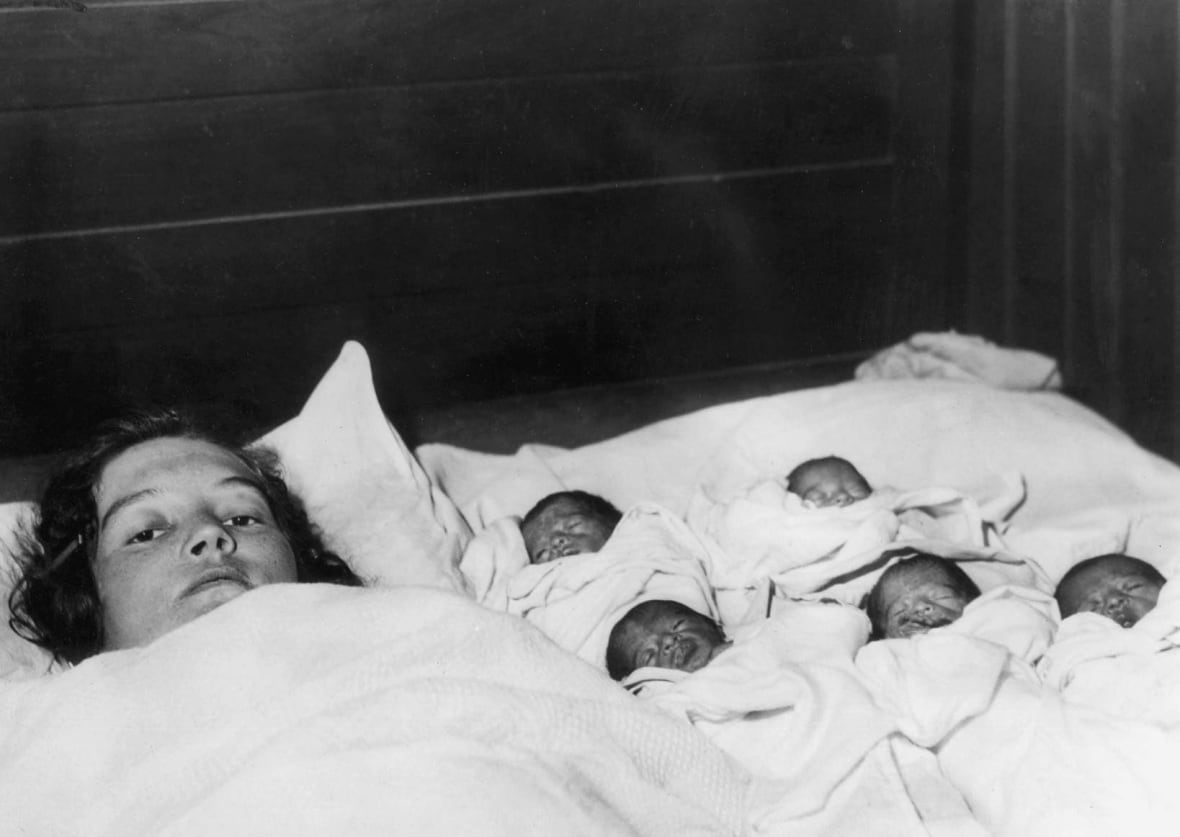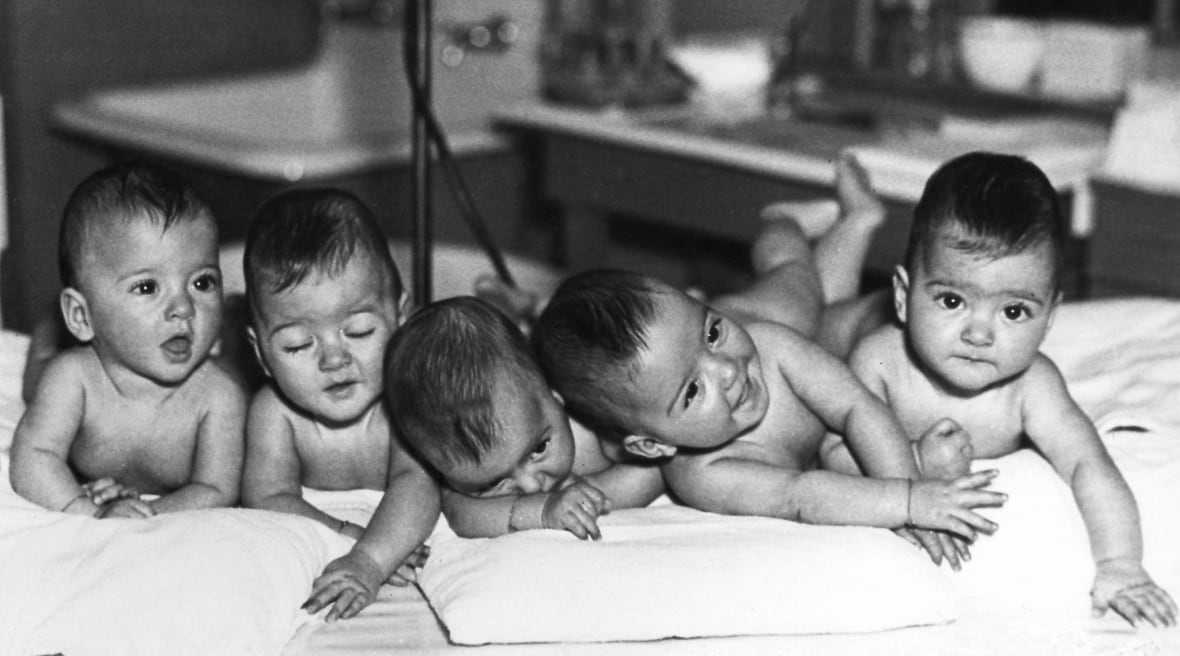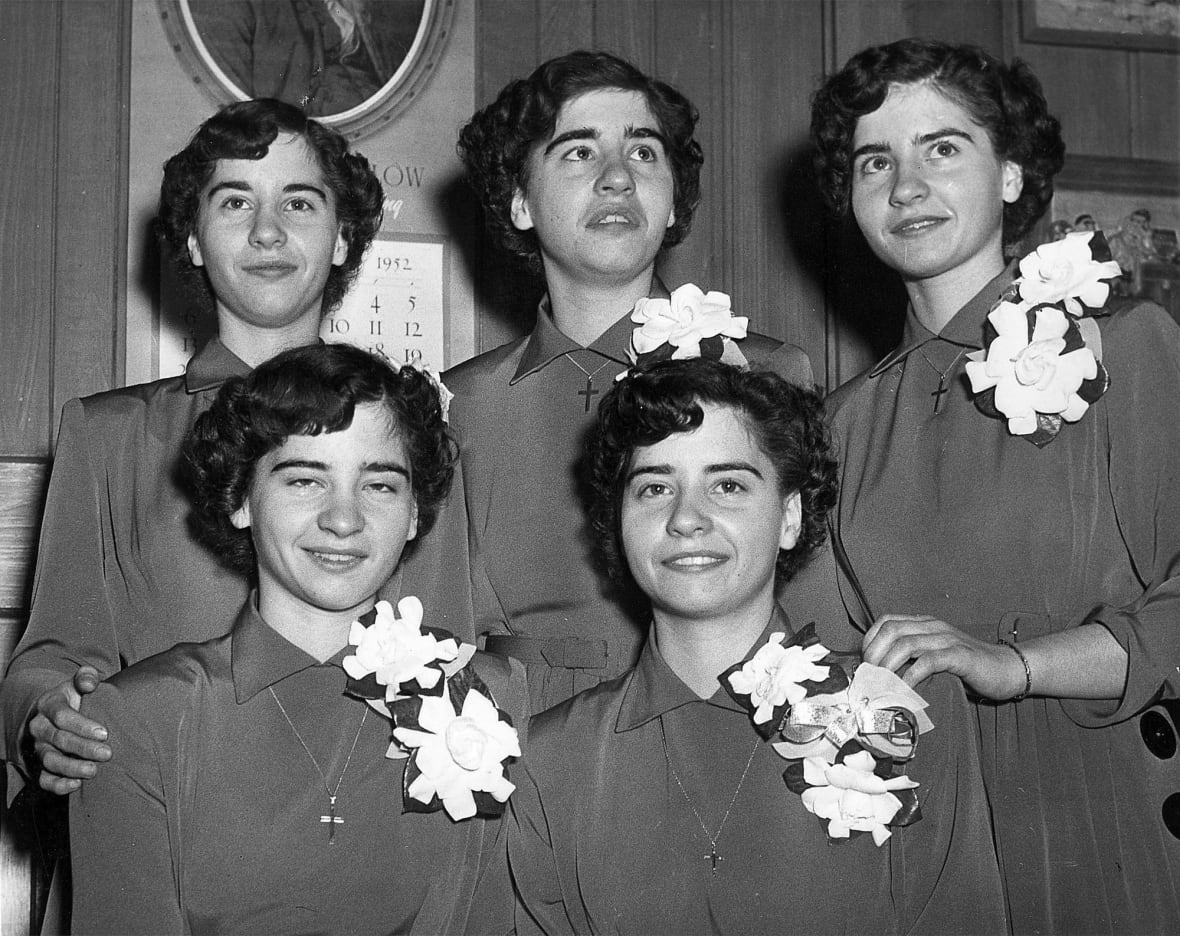Cécile Dionne, one of the famous quintuplets, dead at 91
Born in Corbeil, Ont., quintuplets became a global sensation but their lives were marked by hardship

Cécile Dionne, one of the world-famous Dionne quintuplets, died earlier this week following a long illness. She was 91.
Her death, in a Montreal hospital, was confirmed by Carlo Tarini, a former spokesperson for the family and close friend.
The Dionne quintuplets became a global sensation after their birth in a small loghouse outside Corbeil, Ont., on May 28, 1934. Born prematurely, they were believed to be the first quintuplets to survive past infancy.
The sisters were a source of fascination at a time when multiple births were rare, and their lives were not easy.
"A symbol of an era marked by wonder, controversy, and exploitation, she lived her life with quiet dignity, exemplary discretion, and gentle humour, despite the hardships of a childhood lived in the public eye," read her obituary, shared by Tarini.
"She leaves behind family members, close friends, and countless Canadians who continue to remember with emotion the extraordinary story of the 'Dionne quintuplets.'"
Cécile's sister, Annette Dionne, is the lone surviving quintuplet.

The Ontario government removed the quintuplets from their family when they were just four months old. The province deemed their parents unfit after agreeing to display them at the Chicago World's Fair (though they later changed their mind).
In government care, the sisters were moved into a special nursery and observatory called Quintland, with scheduled viewing times for the public.
In Quintland, the girls were tended to by a team of nurses and were put on display for thousands of curious tourists.
According to Tarini, the sisters attracted more than six million visitors between 1934 and 1943.

"Sometimes, as many as 6,000 people a day would pass by. This allowed for the construction of a multi-lane highway to reach the deep woods in northern Ontario," he said, adding that they "helped create a tourism industry of hotels and accommodations that still exists today."
Tarini said the quintuplets were "more popular as a tourist attraction" than the Niagara Falls.
The girls' parents, Oliva and Elizire Dionne, won them back when they were nine after a bitter custody battle, though their experience with them was also difficult. In past interviews, some of the sisters alleged their father was abusive.
In 1998, the three surviving sisters received an apology and a $4-million settlement from the Ontario government for its role in mismanaging a trust fund meant to support them.
'A true fighter'
In a 2017 interview with CBC, as she fought to preserve her childhood home, Cécile reflected on the challenges the quintuplets faced.
"We went through many things," she said, explaining that although she and Annette have some fond memories of Quintland, it was no way for children to grow up.
"We didn't feel free," she said. "It's not normal for a human to be watched like that all the time."

Tarini considered Cécile to be "a leader of the surviving Dionne sisters" and highlighted her dedication to the fight for justice.
"She spoke out about the suffering that they had to endure," he said.
Tarini drew a parallel between the Dionne quintuplets and the Kardashian sisters. While the quintuplets were thrust into the public eye, he noted the Kardashians have actively embraced media attention.
"[Cécile] told me once, 'I don't understand this Kardashian family. When I was young, I never wanted attention. I wanted to be left on my own, allowed to live a normal life,'" said Tarini.
But he added that Cécile managed to do so in her later years because she was a "true fighter."
With files from Hénia Ould-Hammou and Radio-Canada's Sarah Tomlinson

